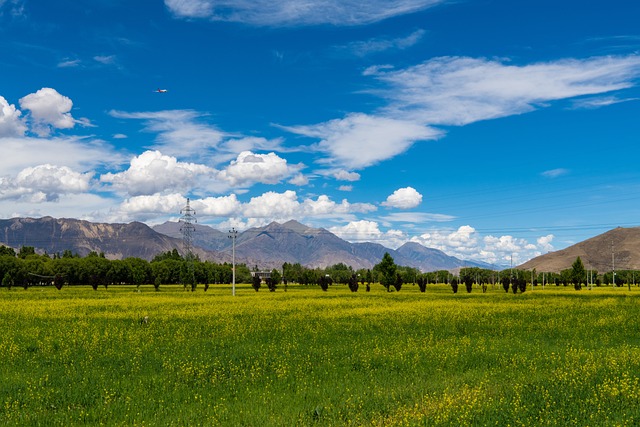rio casino ✅ The Controversial Path to a Casino in Rio: A Gamble for the Future?

The Controversial Path to a Casino in Rio: A Gamble for the Future?
As the debate over the potential establishment of a casino in Rio intensifies, voices from various sectors of society are weighing in on the implications of such a venture. Proponents argue that a casino could significantly boost the local economy, enhance tourism, and create jobs, while opponents cite concerns about social impacts, crime, and the integrity of the city's cultural identity. The question remains: Is the introduction of a casino a risk worth taking for the future of this vibrant city?rio casino
Advocates for a casino in Rio highlight the promising economic benefits that could arise from this development. Drawing upon examples from cities around the globe that have successfully integrated casinos into their economies, supporters argue that a casino could attract millions of visitors each year. This influx of tourists would not only fill hotel rooms and restaurants but also generate substantial tax revenues for local and state governments. The potential for job creation is also a compelling argument; thousands of positions could be generated in gaming, hospitality, entertainment, and supporting industries, providing much-needed employment opportunities in a region still recovering from economic setbacks.rio casino
Furthermore, the argument extends beyond immediate financial gains. A casino could serve as a catalyst for broader urban development, revitalizing previously neglected areas and fostering infrastructure improvements. By positioning Rio as a competitive destination for international tourism, a casino could help diversify the local economy, making it less reliant on traditional sectors such as oil and agriculture. In an era marked by rapid globalization, the ability to attract foreign investment and enhance the city's global standing cannot be underestimated.
However, the prospect of a casino in Rio is not without its detractors. Critics caution against the social ramifications that such an establishment could precipitate. The potential for increased gambling addiction, particularly among vulnerable populations, is a significant concern. Studies have shown that the presence of casinos often correlates with higher rates of problem gambling, leading to profound societal issues, including financial ruin, family breakdown, and associated mental health crises. The argument raises a crucial ethical question: Should the potential economic benefits of a casino outweigh the risks to residents' well-being?rio casino

Moreover, opponents also express worries about the potential rise in crime associated with gambling venues. A casino could become a magnet for illicit activities, from minor offenses to organized crime, undermining public safety and straining law enforcement resources. The fear of transforming Rio into a city that prioritizes profit over community welfare is palpable among many citizens and activists. This sentiment reflects a broader concern about the preservation of Rio's cultural identity, which is deeply intertwined with its historical neighborhoods, artistic expression, and social fabric.rio casino
The debate also intersects with issues of governance and regulation. The introduction of a casino would necessitate a robust regulatory framework to ensure responsible gaming practices and mitigate potential negative impacts. Critics argue that the local government must be held accountable for the oversight of such an establishment, ensuring that it operates transparently and ethically. There is a valid apprehension that, without stringent regulations, the casino could exploit vulnerable populations and contribute to societal decay rather than uplift the community.rio casino

In addition, the potential environmental implications of constructing a casino cannot be ignored. Rio de Janeiro is renowned for its natural beauty, with stunning beaches, lush mountains, and rich biodiversity. The construction and operation of a casino could threaten these precious resources, leading to habitat destruction and increased pollution. The voices of environmentalists and community leaders must be included in the conversation, as the long-term sustainability of the city’s natural assets is integral to its identity and livability.rio casino
As the discussion surrounding the casino proposal unfolds, it is crucial for stakeholders, including local residents, business owners, and policymakers, to engage in constructive dialogue. An informed debate must encompass all perspectives, weighing the potential economic benefits against the social, ethical, and environmental costs. Any decision regarding the future of a casino in Rio should prioritize the well-being of its citizens, ensuring that the city remains a vibrant and inclusive place for all.
In conclusion, the prospect of a casino in Rio embodies a complex interplay of economic opportunity and social responsibility. While the potential benefits are enticing, the risks associated with gambling, crime, and environmental degradation cannot be overlooked. As the city stands at a crossroads, it must carefully consider the implications of this gamble for its future. The path forward should reflect a commitment to sustainable development, community welfare, and the preservation of Rio's unique cultural heritage. With thoughtful deliberation and a focus on the common good, Rio can navigate this challenge and emerge stronger, regardless of the outcome of the casino debate.rio casino
Fale conosco. Envie dúvidas, críticas ou sugestões para a nossa equipe através dos contatos abaixo:
Telefone: 0086-10-8805-0795
Email: portuguese@9099.com


